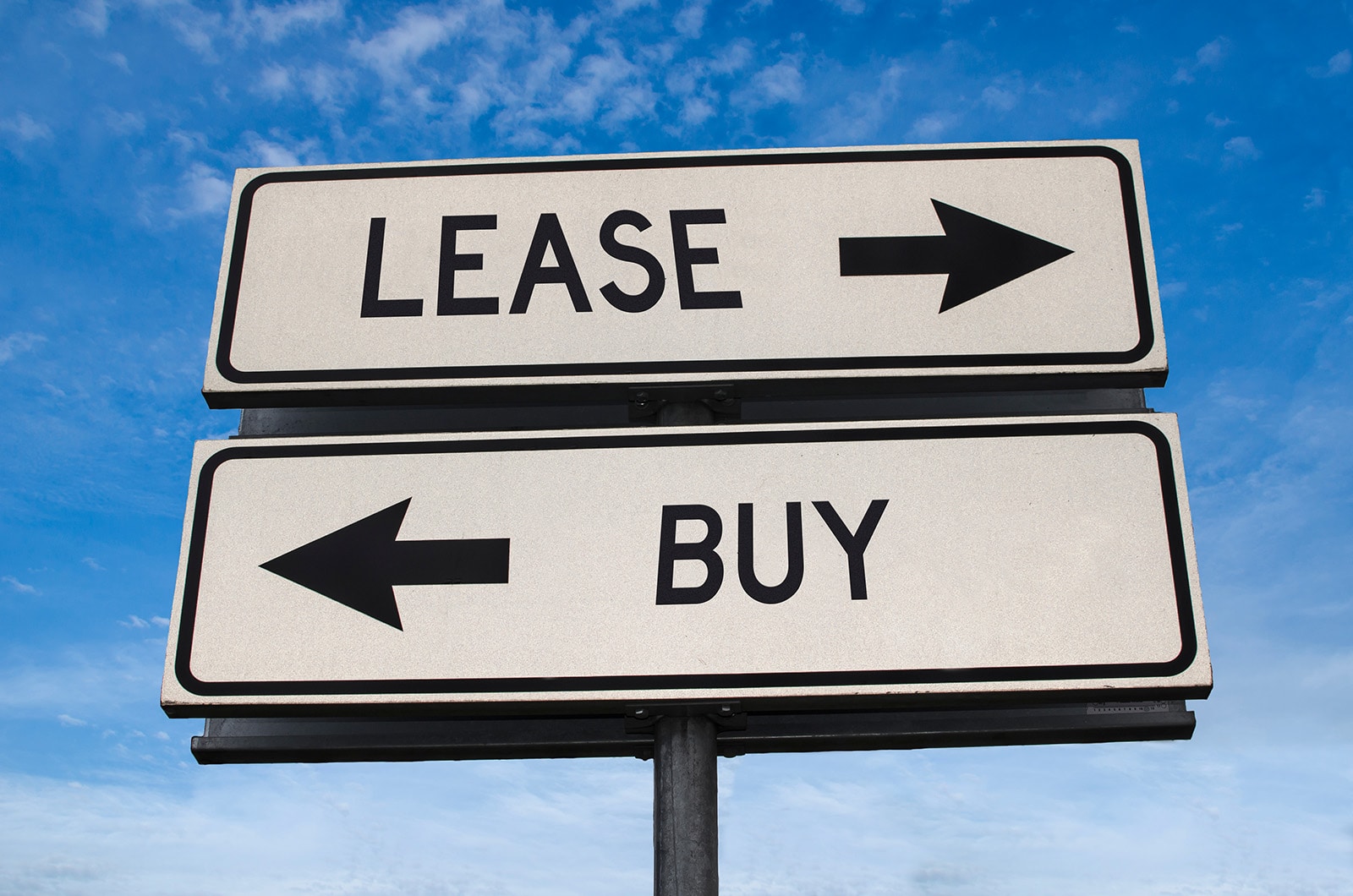

When you’re looking for a new car, you’ll likely have the choice between buying or leasing. While both options will get you behind the wheel of a new vehicle, they come with distinct pros and cons that could impact your finances for years.
Whether you're a first-time car shopper or a seasoned buyer looking to make a change, understanding the differences between buying and leasing can help you make the choice that best fits your lifestyle, budget, and long-term goals. Here, we'll break down the essential factors to consider before signing on the dotted line.
Buying a Vehicle: Pros, Cons, and When It Makes Sense
Pros of Buying a New Car
- Buying a vehicle allows you to build equity in the vehicle and once your loan is paid off, you’ll only have to worry about maintenance and insurance costs.
- There are no mileage limits or excess wear charges to worry about.
- You’ll be able to keep your car as long as you want or sell it at any point.
- Drive as many miles as you want without penalties.
- Since you own the car, you’ll have complete freedom to customize it as your heart desires.
Cons of Buying a New Car
- Cars depreciate rapidly, especially in the first few years. Your car will only hold onto a fraction of its value over its life.
- Buying a new vehicle comes with higher upfront costs—like your down payment and taxes—than leasing.
- Your monthly payments will be higher when you purchase rather than lease.
Leasing a Vehicle: The Perks and the Pitfalls
Pros of Leasing a Car
- Your monthly payments will be lower when you lease rather than purchase your car.
- Leasing allows you to upgrade every few years, which is ideal if you like to stay on the cutting edge.
- Lease deals may not require a down payment, allowing you to get into a new car for a much lower cost than buying.
- Leased vehicles are covered by factory warranties.
Cons of Leasing a Car
- You’ll have to stay within the mileage limits to avoid extra charges. If you have a long commute or like to take road trips, this may be difficult.
- You won’t own the vehicle at the end of the lease.
- Like a purchased vehicle, you’ll be responsible for repairs that aren’t covered by the factory warranty. This includes dents, dings, and scratches.
- Leasing a new vehicle every few years ensures you'll always have a monthly car payment.
- You’re locked into the lease for the entire duration. Ending a lease early comes with hefty fees.
Key Factors to Consider: Financial and Lifestyle Priorities
Whether buying or leasing is a better choice for you depends on your budget, goals, and preferences. Here are tips to help you decide which is better for you:
- Assess your monthly budget and look at how the long-term costs (insurance and maintenance) fit in.
- Look at your mileage needs and determine if leasing restrictions will work with your driving patterns.
- Consider your preference for vehicle customization and the potential impact of life changes like relocation. If you like to customize your vehicle or anticipate moving in the next few years, a lease likely isn’t the right choice for you.
- Is owning a vehicle and building equity important to you? If so, purchasing is probably a better fit.
- Analyze your future vehicle needs, including potential business uses, changes in family size, and the resale or trade-in value of a purchased vehicle.
Buy or Lease Your Next Vehicle at Hoover CDJR Summerville!
Deciding whether to buy or lease your next vehicle ultimately depends on your financial situation, lifestyle preferences, and long-term goals. Since both options have pros and cons, we recommend carefully weighing the factors that matter most to you.
If you need more information or want to discuss buying vs leasing with one of our finance experts, get in touch! We help drivers all around Summerville find the best financing or lease plan for their needs, and we’re happy to help you, too!